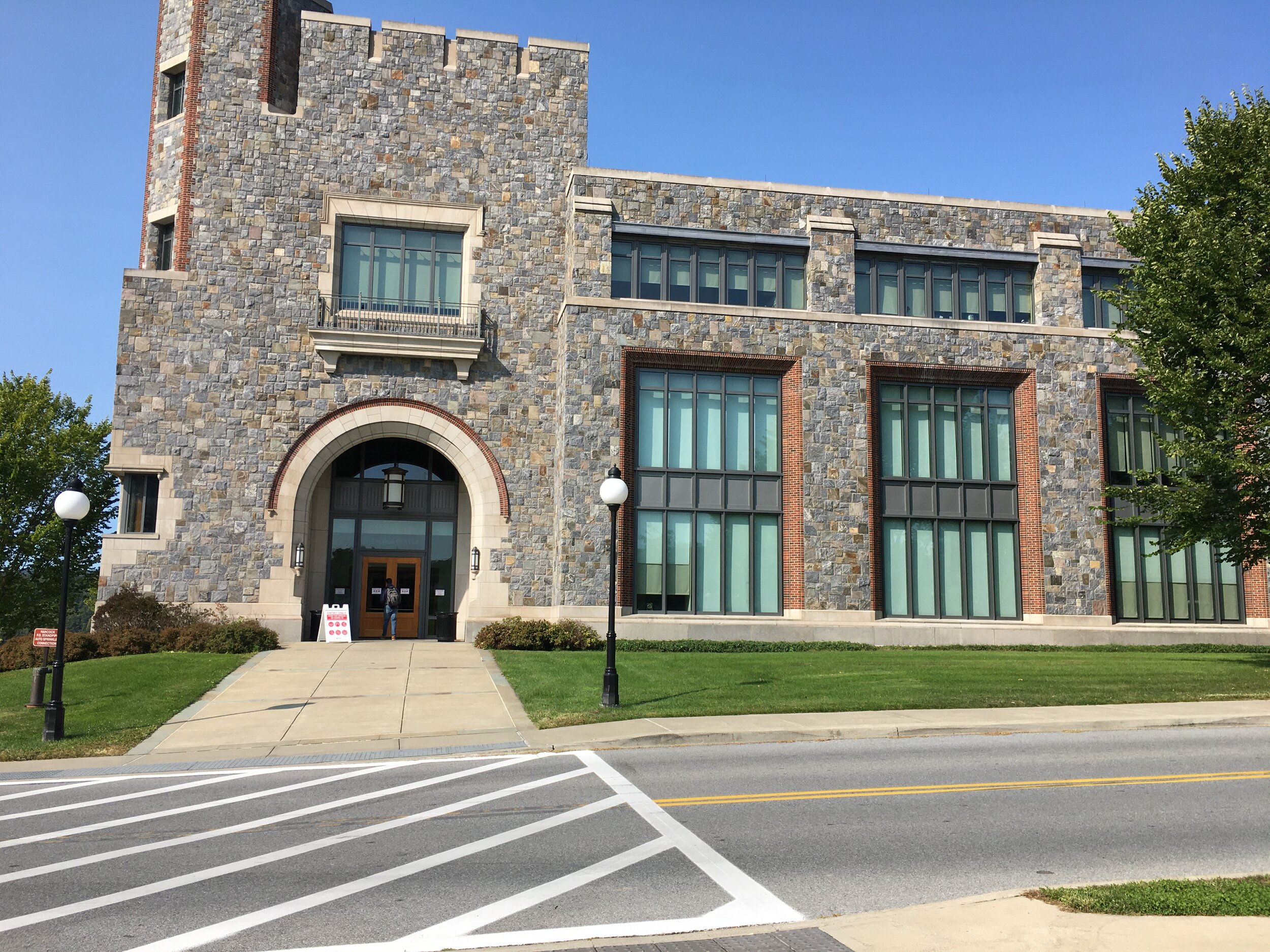Marist Poll Surveys Battleground States
With the 2020 presidential election season approaching, the Marist Poll call center has fallen silent. The phones no longer ring, students have stopped coming in and out for their shifts and the buzz of chatter has ceased.
Nevertheless, the polling continues. In light of the coronavirus pandemic, the Marist Poll is operating virtually.
Marist Poll Call Center is Located in the Hancock Center on Campus. Source: Greta Stuckey ‘23
The founder and director of the Marist Poll, Dr. Lee Miringoff, believes this online shift will benefit the Marist Poll, especially in such a pivotal election. He explained how the Poll “developed a remote software” which improves the surveying process. They are now able to employ more students, which eases the communication between the student coaches and the student interviewers.
Before the pandemic, the Poll was limited in the amount of workers they could have based on the number of available phones in the call center. Survey Center Manager Ashley Hansen explained that in prior years, there were generally 58 interviewers working at one time, along with 12 student coaches, four head coaches and two managers.
There are now 250 student interviewers, all of whom can work at one time as they are able to place calls with their personal cell phones and complete surveys with personal computers. Despite the operational changes, the goal remains the same:
“The Polling Center is an educational mission to a front row seat of a political process,” Miringoff said. “We are interested in the integrity and accuracy of the poll itself.”
The most recent polls have revolved around the upcoming presidential election. The Marist Poll website released the results and analysis of two polls focusing on the battleground states of Pennsylvania and Florida.
Although the topics of the polls cannot be discussed until the questions are released by the polling center, the interviewers guaranteed people remain just as passionate about politics. Although the election is not spoken about in the headlines as often as COVID-19, Hansen said, it is still a “hot topic.”
Polarization defines the battleground states. “Persuadable voters” are more and more scarce, Miringoff said. In the next couple of weeks, the polls plan on focusing on Michigan, Wisconsin and North Carolina to gauge whether voters in those regions are leaning towards voting for Donald Trump or Joe Biden on election day.
When creating the polling questions, the center remains in contact with their partners: NBC for statewide polls and NPR for national polls. Miringoff is currently speaking with NPR about creating a poll focused on how the Supreme Court controversy will affect the election.
Still, all polling questions are continually altered to retain relevance to the daily news.
In polls focusing on politics, the Marist Polling Center analyzes “public attitudes towards the nation,” Miringoff said. “So many people are starting to vote already, we have to separate out intentions between those who have actually voted and those who have not. Then we may introduce focus groups to receive a more in-depth discussion about the presidential debates and the views or candidates.”
Hansen said that the increase in employees will ultimately improve the “relevance of the polls.” Even after the election, field assistant Hannah Kirk –– who helps manage student interviewers –– believes that this hybrid polling system is so effective that the center will continue to implement the virtual aspect they adopted to survive the pandemic.
“We have a really great staff this year,” Kirk said. “Everyone has stepped up because of COVID-19 and I’m really proud of how far we’ve come from where we’ve started.”
